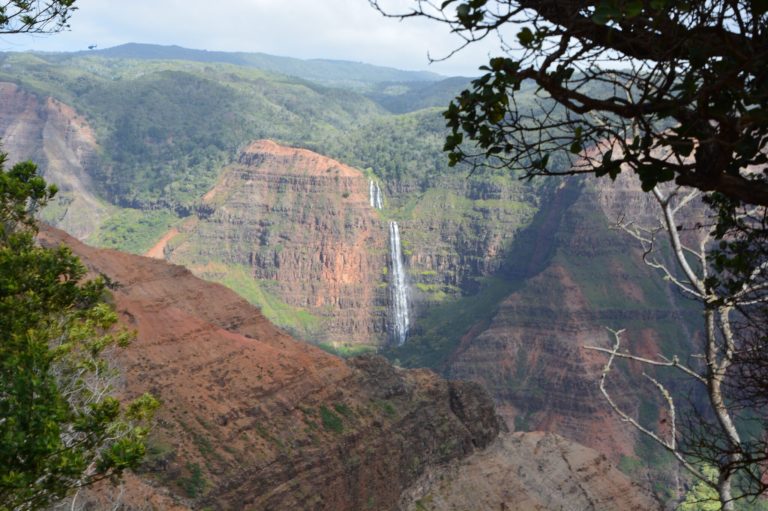
“Sing to me of the man, Muse, the man of twists and turns driven time and again off course, once he had plundered the hallowed heights of Troy.” This may be the greatest opening line in all of literature with it allusions to adventure, war, triumph, blocks and missteps. The muse that Homer refers to in this opening line of “The Odyssey” is one of the ancient Greek goddesses who serve as inspiration to writers, scientists and artists.
We may not be as heroic as Odysseus, who has just sacked the hallowed walls of Troy, but we do go on adventurous journeys which we call vacations. Granted, Odysseus’s journey home was 10 years in length whereas the typical American vacation lasts no more than two weeks max yet his story and our story share the same components of adventure, risk- taking, survival and transformation.
Sarah Lawrence Professor Joseph Campbell taught us about the hero’s journey and how all stories share similar process. We receive the call, resist the call, enlist some help, embark on the adventure, survive the adventure, are reluctant to return home, do return home carrying a boon which we then are supposed to share with others. We must tell our tale to the clan as we sit around the fire.
Every vacation is a hero’s journey so let us ask exactly what is the boon which we bring home to share with our neighbors, friends and family? According to Campbell, the boon is what happens to you as you conquer your fears during the journey. It is enlightenment, wisdom and a sense of superiority, like discovering the holy grail or the answer to life.
Vacations are always a hero’s journey so transformation does occur. You may not have Homer and his muse to write your tale as Odysseus did, but it seems reasonable to suggest that half the point of a vacation is to learn something, be transformed by it and return home to tell others about what you saw and even how you’ve changed.
I’ve always felt that the retelling of vacations lacks imagination. I know of a writer who creates books about vacations trips with pictures of the places you are about to visit and a place to journal what you did that day and the book serves as a diary you can use to tell your tale when you return home.
Of course, everyone lacks an audience these days unless you’re Kim Kardashian, Angelina Jolie or Brad Pitt. No one wants to hear about what you did in Paris or Capri or Rome unless you happen to be Russell Crowe.
As children we all had grade school teachers who gave us the assignment on the first day of school to “write about what you did on your summer vacation.” What I wouldn’t give to read one of my priceless little 50-word essays.
“Well, we spent all summer in Maine at my grandfather’s farm. My grandmother made us homemade pancakes every day with maple syrup from the trees outside. Me and my brother Pete got to sleep on the second-floor porch which was fun! My dad would come up at weekends to see us. One day my crayons melted because I left them in the car when we went to church. The trip home to New York was fun cause I traveled alone with my brother on a train. I was in the upper birth. It was like a bed with red velvet curtains, and I stayed up all night just looking out the window. I saw the moon that night. It was very big.”
I pity those poor grade schoolteachers who had to read this stuff. I don’t recall if I got a grade on that one. Nor do I know if I learned anything on my summer vacations. I recall the smell of forests in Maine and how cold the water is in the lakes up there and that it was fun to ride in a sleeper train back to New York. But is that really a big enough boon to be considered achieving enlightenment?
“In Search of Lost Times” by Marcel Proust has a scene of him taking a carriage ride while on vacation with his aunt. He notices an apple tree in blossom and upon return to Paris he goes into a florist shop and buys a branch of an apple tree to remind him of what he had seen. I still recall that scene he wrote. Something very touching and poignant about the way he wanted to hold onto a great memory.
We don’t travel to Jersey City on vacations. We travel to Paris or Capri or Venice because we know they have something to show and to teach us. Paris is a lesson in sacred architectural beauty as you stare wide-eyed at the Eiffel Tower. Capri is a lesson in pure magic as you walk along ancient avenues with flowers everywhere and a view of a crystal clear sea far below you. For 2,000 years, every emperor of Rome had invested in keeping Capri beautiful and safe. To see Venice and its lights as you travel on a boat through the canals after a meal of linguine with calm sauce is to be a part of heaven.
The question is how does one hold onto these vacation experiences and relate these experiences to others? Unless you’re Marcel Proust or Somerset Maugham or Homer and have a muse at your side, recalling and retelling these experiences is problematic. So, we are left with just one choice, which is to plan trips and go on them with the hope that in the process you have been transformed into a better, wiser and happier human being.







